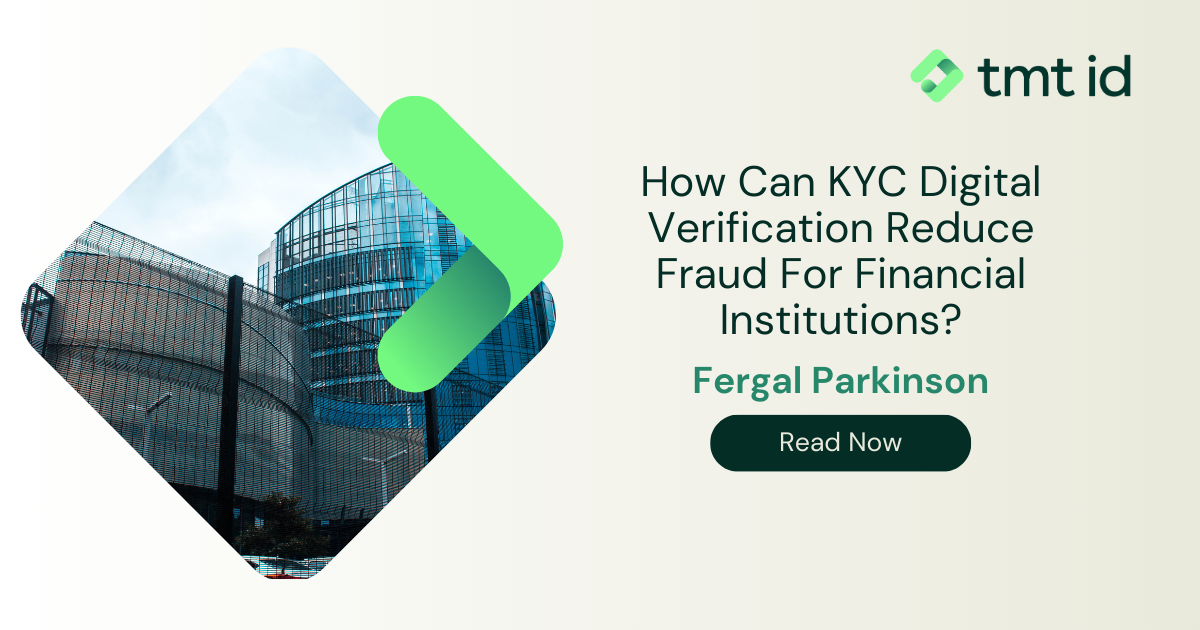
It’s no secret that financial organisations face risks on a daily basis from the threat of fraud. In fact, it’s never been so important to have the right solutions in place to combat attacks from digital swindlers in particular. Making sure your business has the defences it needs to protect you from fraudulent apps, manipulated statements, fake identities and much more is something that needs to be a priority in 2023, as the world leans even further into the digital age. In fact, one of the main technologies many companies are turning to now is KYC (Know Your Customer) digital identity verification.
Financial fraud can present itself as many different types of deception. Whether it’s major cyber infiltrations on big fintech’s or small businesses falling victim to loan fraud scams – every attack waged on any business has a knock on effect on the financial industry as a whole.
When it comes to who’s affected, the statistics certainly don’t discriminate. Whether you’re a fintech company or a university student, you can be just as susceptible to falling foul of online swindlers. These loan scams that often falsify identities and mimic banks tend also to be the ones that cause the most damage, as they steal from both the banks and their customers.
The fact is, it’s pretty much impossible to ever fully prevent or control every instance of fraud. However, businesses, banks and individuals can ensure due diligence is paid to reduce the risks as much as possible. A huge factor of this is through the use of digital identity verification. This is already part of basic customer due diligence for KYC (Know Your Customer) compliance and anti-money laundering practices. For a fraud attack to be successful, perpetrators would have to either overcome the digital identity verification system completely (which could prove difficult) or give totally false information.
So what are the benefits of digital verification technology when it comes to combating fraudsters and how can KYC technology in particular help your business?
Identity checks mean financial institutions can assess a potential customer’s risk classification through strong customer authentication. This massively reduces your organisation’s risk of becoming unintentionally involved in any financial crime.
Ultimately, deploying KYC authentication is good for business because it reduces fraud cases and it builds trust. Adopting stringent KYC procedures means a financial institution is only concerned with doing lawful business. This translates into a good business reputation and improved trust.
While the specific industries subject to KYC identity checks may vary by jurisdiction, some commonly regulated online industries include:
Financial Services: Banks, credit unions, and other financial institutions are required to perform KYC checks when onboarding customers. This helps verify the identity and background of individuals or businesses before providing financial services.
Cryptocurrency Exchanges: Due to the inherent risks associated with cryptocurrencies, KYC checks are typically required by cryptocurrency exchanges. This ensures compliance with anti-money laundering (AML) regulations and helps prevent the misuse of digital currencies for illegal activities.
Payment Processors: Companies involved in online payment processing often need to adhere to KYC regulations. This includes payment gateways, e-wallets, and platforms facilitating online transactions. KYC checks help establish the identity and legitimacy of individuals or businesses using their payment services.
Online Marketplaces: Some online marketplaces may require KYC checks for sellers or users engaging in high-value transactions. This helps ensure the integrity of the marketplace and provides a level of trust between buyers and sellers.
Crowdfunding Platforms: In certain jurisdictions, crowdfunding platforms that allow individuals or businesses to raise funds online may be subject to KYC regulations. This ensures transparency and reduces the risk of fraudulent campaigns or money laundering.
Overall, it’s clear that KYC regulations have far-reaching implications, both for financial institutions and consumers. Since the emergence of KYC technology, it’s clear that it’s had a real impact when it comes to fighting financial crime, money laundering, terrorism funding, and other illegal financial activity.
As these activities often rely on anonymously opened accounts, KYC has proved to be the perfect approach, leading to increased reporting of suspicious transactions. Here at TMT, we believe that a risk-based approach with KYC can help eliminate the risk of fraudulent activities and ensure a better customer experience, which is why we offer our very own solution to these problems by using live telco data.
Using live telco data, our services are increasingly being used to help companies ensure a mobile number and a device are linked to the person they hold on record, particularly at the point of account sign up or at checkout.
Our services are also being increasingly used to counter the threat of frauds such as SimSwap attacks or account take over frauds when a fraudster manages to take hold of a customer’s account. Our data can spot this fraud and alert companies to it, therefore enabling them to protect their customers. In 2021 in the U.S. $68m was lost through this sort of attack.
Our services combine several authoritative data sources and our own deep knowledge of the Mobile Telephony landscape across the world to offer a solution for a variety of use cases. To find out more about how our Verify solution can help protect your business from fraudsters, get in touch with us today and have a chat with one of our friendly experts.
You can also find out more about our Verify product offering here.
Last updated on September 18, 2024
We provide the most comprehensive device, network and mobile numbering data available
Contact us > Chat to an expert >